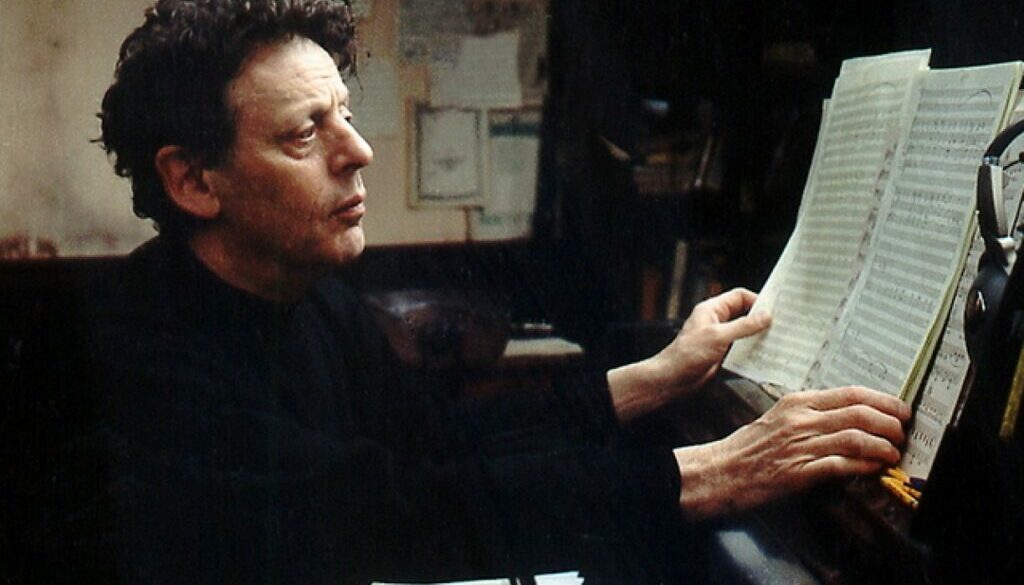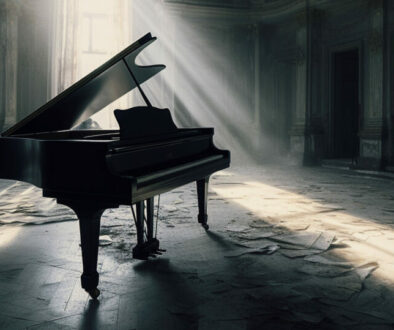Philip Glass: A Beacon of Innovation and Inspiration at the Piano Revenge Festival
A Symphony of Resilience and Revolution
Early Notes: A Baltimore Soundtrack
Growing up in Baltimore, Philip Glass’s childhood was a sonic mosaic. His father’s record store became a treasure trove of eclectic infl uences—hillbilly tunes, Buddy Holly’s rock ‘n’ roll, R&B, Beethoven quartets, and modernist works by Shostakovich and Bartók. “There was always contemporary music,” Glass recalls, citing Charles Ives and the Second Viennese School. A teenage Glass even mailed away for Schoenberg’s harmony book, dissecting its rules with precision. By his teens, he was steeped in Bach masses at church and Gilbert & Sullivan pit orchestras, learning the mechanics of theater—a foundation that later grounded his operas.
Mentors: Fear, Love, and Global Sounds
At 15, Glass sprinted through academia, landing at Juilliard after the University of Chicago. But his true education bloomed in Europe under two titans: Nadia Boulanger, the “fi erce” Parisian guru who drilled Western classical rigor into him, and Ravi Shankar, the Indian sitar maestro who taught through warmth and collaboration. “One through fear, one through love,” Glass refl ects. Shankar’s infl uence, beginning in 1964, opened doors to Indian classical music and philosophy, reshaping Glass’s aesthetic. Extended stays in Kerala introduced him to kathakali dance theater, which later infused operas like
Satyagraha
. “Back then, you had to
go
to Bali to hear Balinese music,” he muses. “Now, the world’s at your fi ngertips.”
The Grind: Taxis, Plumbing, and Carnegie Hall
Returning to New York in 1967, Glass formed his ensemble out of necessity. “I wasn’t cut out for academia,” he admits. Rehearsing in his living room with seven musicians, he honed his minimalist sound—even as audiences trickled in at just 20 people a night. Breakthroughs like 1976’s
Einstein on the Beach
brought acclaim, not cash. “I went back to driving cabs and fi xing pipes,” he says. By 1979, his self-produced Carnegie Hall debut required selling tickets himself. “I didn’t mind the hustle. I grew up in the music business.”
Legacy: Outliving the Critics
Does Glass feel vindicated as tonal harmonies and repetition now permeate modern music? “No,” he laughs. “The old guard didn’t change their minds. They just died. Biology solved it.” For him, the “battle” between styles was never won—it faded as generations shifted. Yet Glass’s work endures, a testament to stubborn creativity. “We carry on playing,” he says. And for a composer once dismissed for blending East and West, tradition and innovation, the symphony continues.
For decades, Philip Glass has stood as a towering fi gure in contemporary music, his infl uence rippling across generations of composers and performers. At events like the Piano Revenge Festival—a gathering of pianists and creators pushing the boundaries of their craft—Glass’s
legacy is celebrated not just for his groundbreaking compositions, but for the fearless creativity he embodies. His work continues to ignite the imaginations of festival participants, reminding them that innovation and emotional depth can coexist in the realm of piano music.
The Architect of Minimalism
Glass’s innovative approach to piano music lies in his mastery of minimalism, a style characterized by repetitive structures, rhythmic precision, and gradual transformation. Pieces like
Metamorphosis
and his
Twenty Etudes for Piano
exemplify this ethos. Rather than relying on traditional harmonic progression, Glass constructs intricate tapestries of sound through subtle shifts in rhythm and texture. A single motif might repeat, but it evolves organically, creating a hypnotic eff ect that invites listeners—and performers—into a meditative yet intensely dynamic space.
His
Etudes
, composed over two decades, are particularly revered at the Piano Revenge Festival. These works might challenge pianists technically and emotionally, blending virtuosic demands with poetic expression. Glass’s use of additive processes (gradually expanding or contracting musical phrases) and infl uences from non-Western traditions, such as Indian classical music, further dismantle conventional boundaries, off ering performers a playground of rhythmic complexity and global resonance.
Inspiration for a New Generation
For Piano Revenge Festival participants, Glass’s music is more than a technical exercise—it’s a manifesto for artistic freedom. His willingness to merge disciplines (from opera and fi lm scores to collaborations with artists like Ravi Shankar and Allen Ginsberg) encourages pianists to explore interdisciplinary projects, weaving storytelling, visual art, or technology into their performances. Many festival attendees cite Glass’s ability to balance structure with spontaneity as a guiding principle, allowing them to infuse personal interpretation into his repetitive frameworks.
“Playing Glass’s
Etudes
feels like a dialogue between discipline and intuition,” remarks one hypothetical participant. “You’re anchored by the patterns, but within them, there’s room to discover new emotional landscapes.” This duality resonates deeply at a festival dedicated to “reimagining” piano music, where artists strive to honor tradition while defying expectations.
A Living Legacy
At 88, Glass remains an active force, proving that creativity knows no age. His enduring relevance underscores a lesson cherished by the Piano Revenge community: innovation isn’t about rejecting the past but recontextualizing it. Glass’s music bridges the classical and the contemporary, the cerebral and the visceral, off ering a roadmap for pianists to craft works that are both accessible and profound.
As the festival’s performers take the stage, channeling Glass’s spirit, they carry forward his belief that music is a living, evolving art. In their hands, his minimalist patterns become a canvas for fresh stories, ensuring that Philip Glass’s legacy—like the notes of his ethereal compositions—will continue to reverberate, inspire, and transform.
The Piano Revenge Festival celebrates artists who redefi ne piano music, and Philip Glass’s contributions remind us that true innovation lies in the courage to listen deeply—and repeat, repeat, repeat, until something entirely new emerges.



